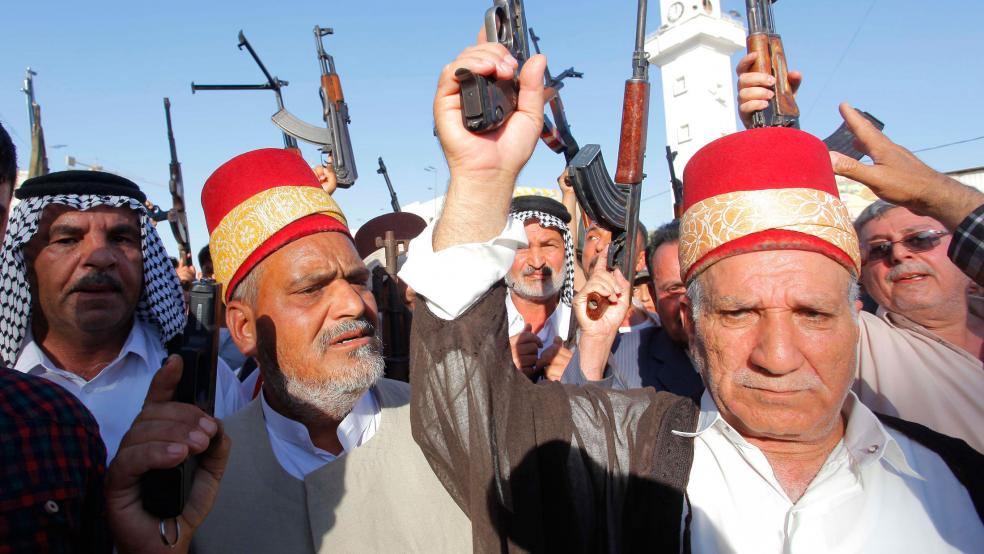The growing conventional wisdom among the international foreign policy community is that the advance of the International State of Iraq and Syria (ISIS) to the outskirts of Baghdad will radically transform Iraq into a different country.
“This is very possibly the end of Iraq as we know it," said Christiane Amanpour, chief international correspondent for CNN, a reliable barometer of the international mood. “There will be a de facto partition—the Kurds in the north, ISIS controlled territory to the west of that, including Al Anbar, the famous Sunni heartland, and then a Shiite big state down from Baghdad to the south encompassing all of the majority Shiite areas and the Shiite shrine cities."
Related: How the Collapse of Iraq Would Affect America
“When ISIS' precursor—the Al Qaeda in Iraq—had really wrecked Iraq, particularly the west, and the place was in a massive civil war, President Bush and General Petraeus ordered a surge and defeated these people, but it was also political," she said on the Takeaway Tuesday. "When President Obama pulled the U.S. troops out, this started to go to hell again in a hand basket."
Iraq is likely to be split into three territories: a Sunni territory in the northwest, a Kurdish territory in the northeast, and a Shiite territory in the south.
The White House has vowed to do all it can - minus boots on the ground - to keep the territorial integrity of Iraq. Secretary of State John Kerry has even suggested the United States would work with Iran to save Iraq.
“We're open to discussions if there is something constructive that can be contributed by Iran, if Iran is prepared to do something that is going to respect the integrity and sovereignty of Iraq and ability of the government to reform," Kerry said.
Related: Iraq Could Become a Three-Headed Monster
These efforts assume that the best outcome for the future of Iraq is to restore its borders. Yet there are quiet calls to split the country in three along ethnic lines. And one of the first people to suggest this is Vice President Joe Biden.
As senior Democrat on the Senate Foreign Relations Committee in 2006, Biden penned an op-ed in The New York Times advocating for partitions between Iraq’s three ethnic groups. He wrote that the best way to govern Iraq “ [the idea] “is to maintain a united Iraq by decentralizing it, giving each ethno-religious group ... room to run its own affairs, while leaving the central government in charge of common interests.”
Now, with Baghdad on the verge of collapse, some are suggesting Biden’s idea be revisited.
“I believe Joe Biden when he ran for the presidency mentioned that Iraq should really be divided into three states. The question really is does the U.S. have a dog in this fight anymore?” asked Edward Goldberg, a professor at Baruch College and the New York University Center for Global Affairs.
Related: U.S. Watches As Iraq Speeds Toward Disaster
The reason the United States has little incentive to maintain a whole Iraq is that the vast majority of the war gains there have already been lost. The Malaki government is failing. Development projects lay in ruins. Billions in American aid prop up political institutions. And the best outcome is that the ISIS occupied northwest remains a terrorist’s stronghold while the rest of the country does not.
The trillion-plus dollar investment made in Iraq is gone.
The only real interest the United States has in Iraq is oil. However, according to Goldberg, the increase in domestic production has made it less important than it was a decade ago.
“As the U.S. daily becomes more energy independent does the Middle East matter as much to us?” he said.
Top Reads from The Fiscal Times





